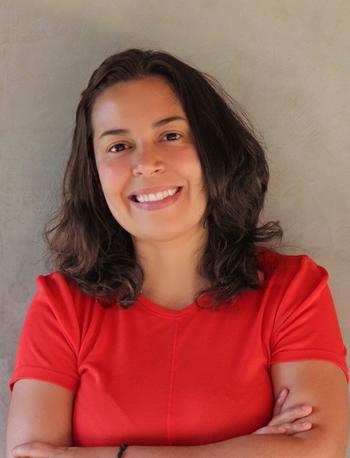Carolina da Cunha Rocha

International Research Training Group 'Temporalities of Future in Latin America'
Dynamics of Aspiration and Anticipation
PhD Candidate
Project: “Cultivating the State, Seeding the Future: Progressive Politics in the Agricultural Sector and the Formation of an Agrarian Technocracy in Brazil (1930-1975)”
Project: “Cultivating the State, Seeding the Future: Progressive Politics in the Agricultural Sector and the Formation of an Agrarian Technocracy in Brazil (1930-1975)”
How to rule the rural world? How to eliminate misery and hunger? From 1930 to 1970, and considering these questions, an agricultural administration was consolidated in Brazil requiring scientific formation and professional specialization of technicians and experts on rural and management issues. This investigation makes questions about the historical process of the formation of a Brazilian technocracy specialized in studying the field issues and designing projects and public policies intending to control and reform the agricultural society and economy. Therefore, the objective of this thesis is to analyze the formation of a technical bureaucracy in the building of a new agriculture type intended to overcome rural production concepts and methods deemed as being traditional in Brazil in such period. The research focus is the process to create an agricultural technocracy in different Brazilian (Vargas Period, national developmentalism, and the first years of the Military Dictatorship) and international historical contexts (Interwar Period, Post World War Period and Cold War). It will be intended to emphasize the institutionalization of Natural Science in order to achieve the State goals, as well as to understand which role agriculture had in a country which main objective was to become an industrial power. The research will emphasize the nature of the professional training of its technical body and will understand how the State invested in the educational development of its own agronomists, veterinarians, and agricultural technicians as a way to overcome poverty and to achieve modernity. The hypothesis in this research claims that the agricultural technicians and experts acted as cultural intermediates at the State's service, acting by the public policies and the agricultural institutions, and had the hard task of driving a modernizing mindset in the rural zones, as well of building a new idea of nation.
Research focus:
Nationalism and agrarian public policies
Technical and scientific advancements
Formation of a national agrarian technocracy
Flux of ideas and interchange of agrarian knowledge and techniques
History, International Relations, Political Science and Sociology
Brazil, Latin America, United States and Europe


